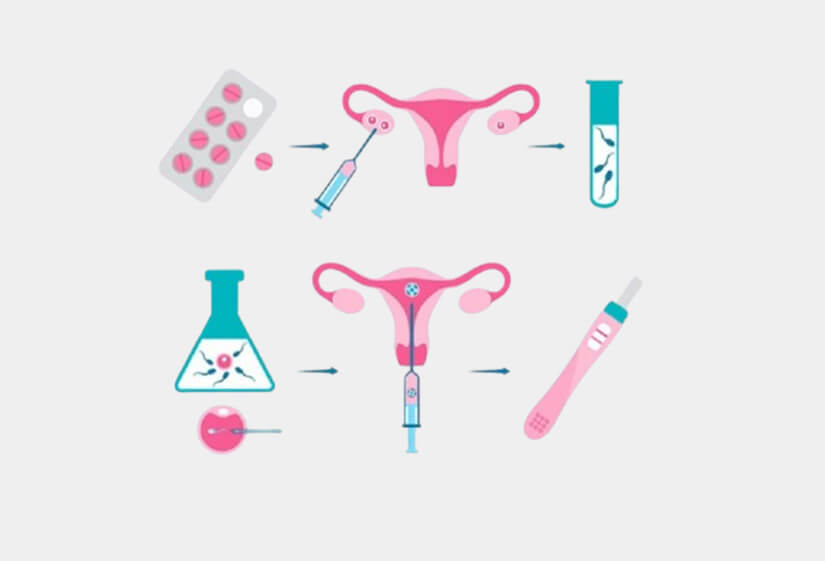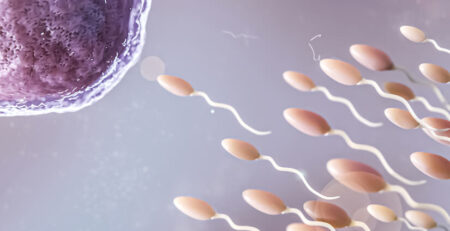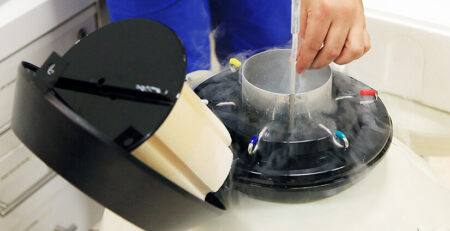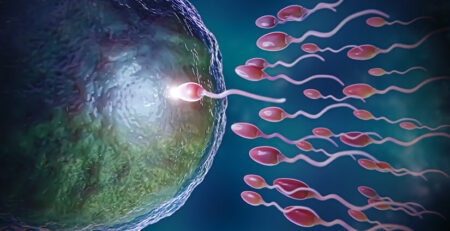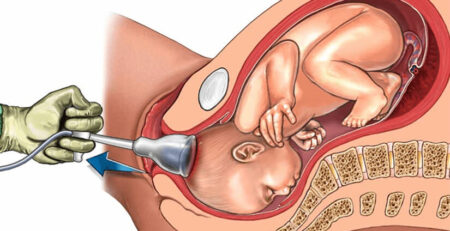How Long Can an Embryo and Egg Be Frozen? A Comprehensive Guide
Embryo and egg freezing duration has revolutionized reproductive medicine, allowing individuals to preserve their fertility for future use. But how long can embryos and eggs remain frozen while maintaining their viability?
Let’s understand the deeper details.
Embryo and Egg Freezing – Fertility for Another Time
Egg and embryo freezing, medically known as oocyte and embryo cryopreservation, involves freezing reproductive cells at extremely low temperatures using advanced cryogenic technology. The process helps preserve fertility for those who wish to delay pregnancy due to personal, medical, or professional reasons.
How Does Egg and Embryo Freezing Work?
The process begins with ovarian stimulation, where hormone medications are administered to encourage the ovaries to produce multiple eggs. These eggs are then retrieved using a minimally invasive procedure. Once collected, they can either be frozen in their unfertilized state or fertilized with sperm to create embryos before freezing.
The freezing itself is done using an advanced technique called vitrification, which is a fast-freezing method that prevents the formation of ice crystals. Ice crystals can cause damage to cells, reducing the chances of survival upon thawing. Vitrification ensures that eggs and embryos remain structurally intact and highly viable for future use.
Types of Fertility Preservation:
- Egg Freezing (Oocyte Cryopreservation): This involves retrieving and freezing unfertilized eggs. It is an excellent option for women who want to preserve their fertility before undergoing medical treatments that may impact reproductive health, such as chemotherapy, or for those who wish to delay pregnancy for personal or career reasons.
- Embryo Freezing: This process involves fertilizing the retrieved eggs with sperm through in vitro fertilization (IVF) before freezing. This method is particularly beneficial for couples planning to conceive in the future or individuals undergoing fertility treatments.
Both methods are widely used, but one common question remains—how long can they be stored without compromising quality?
The good news is that the embryo and egg freezing duration can extend for decades without a decline in quality if properly preserved. Scientific advancements have proven that reproductive cells remain viable for long periods, offering hope and flexibility to individuals looking to conceive at a later stage in life.
How Long Can an Embryo and Egg Be Frozen?
Technically, there is no expiration date for frozen embryos and eggs. Scientific research and clinical cases have demonstrated that reproductive cells can be preserved for decades and still lead to successful pregnancies.
Studies have reported live births from embryos frozen for more than 30 years, proving that the embryo and egg freezing duration can be exceptionally long with the right preservation techniques.
However, while the potential storage duration is indefinite, various factors impact success rates when thawing and using frozen eggs or embryos.

Getting pregnant is now easier
Book IVF Consultation
The Process That Keeps Eggs and Embryos Viable for Decades
Advancements in fertility preservation have made it possible for eggs and embryos to remain viable for decades. The most significant breakthrough in Oocyte cryopreservation time limits is the introduction of vitrification, a revolutionary freezing technique that dramatically improves survival rates. Unlike traditional methods, vitrification ensures that frozen reproductive cells remain intact and ready for future use.
Freezing Methods: A Comparison
- Slow Freezing:
- Older method used for decades.
- Involves gradual cooling, which increases the risk of ice crystal formation.
- Ice crystals can damage delicate cellular structures, reducing survival rates after thawing.
- Lower success rates for fertilization and implantation compared to vitrification.
- Vitrification:
- Modern, ultra-fast freezing technique.
- Prevents the formation of ice crystals, ensuring cell integrity.
- Improves post-thaw survival rates, making eggs and embryos more likely to result in successful pregnancies.
- Has become the gold standard for long-term fertility preservation.
With Oocyte Cryopreservation Time Limits extending indefinitely due to these advancements, vitrification has largely replaced slow freezing, making long-term storage of eggs and embryos a highly effective option.
Does Freezing Duration Affect Success Rates?
A key concern among individuals considering fertility preservation is whether extended freezing affects success rates. Research indicates that the longevity of frozen embryos and eggs does not significantly decline over time. As long as proper cryogenic storage conditions are maintained, the age of the egg at the time of freezing matters more than the duration of storage.
- Younger eggs (frozen before 35) have higher chances of leading to pregnancy. Since egg quality declines with age, freezing them at a younger age preserves their viability and improves success rates when they are eventually used for fertilization.
- Embryos created using eggs from younger women also have higher implantation success rates. This is because chromosomal abnormalities are less common in younger eggs, leading to higher embryo viability and a greater likelihood of successful pregnancies.
- Egg and embryo survival rates remain high even after decades of storage. Scientific studies have shown that frozen eggs and embryos, when properly stored in liquid nitrogen at -196°C (-320°F), maintain their integrity and functionality indefinitely.
- Advancements in freezing techniques, such as vitrification, play a crucial role. The transition from slow freezing to vitrification has dramatically improved post-thaw survival rates, ensuring that long-term storage does not negatively impact reproductive potential.
The quality of eggs and embryos at the time of freezing plays a more crucial role than the length of storage. This means that individuals considering fertility preservation should focus on freezing at an optimal reproductive age rather than worrying about how long they will remain frozen.
Oocyte Cryopreservation Time Limits: How Long is Too Long?
Regulatory guidelines for oocyte cryopreservation time limits vary by country. In India, there are no strict limits on storage duration, but globally, storage periods are often set between 10 to 20 years, with options for extensions based on medical necessity.
Hospitals and fertility clinics routinely check storage conditions to ensure the embryos and eggs remain viable for extended periods.
Longevity of Frozen Embryos and Eggs: Key Considerations
Several factors determine the long-term success of frozen eggs and embryos. The effectiveness of storage relies on optimal conditions, advanced freezing techniques, and expert handling. Below are the most critical aspects that influence the viability of frozen reproductive cells:
- Storage Conditions: The preservation of eggs and embryos depends on being stored in liquid nitrogen at -196°C (-320°F). This extreme temperature keeps metabolic activity at a standstill, preventing any cellular degradation.
- Freezing Technique: The method used for freezing is crucial. Vitrification is the most advanced technique, offering superior results compared to slow freezing. It minimizes the formation of ice crystals, which could otherwise damage delicate cell structures.
- Age at Freezing: The biological quality of eggs and embryos at the time of freezing significantly affects future success rates. Younger eggs (from individuals under 35) have higher survival rates and implantation potential when thawed.
- Thawing Process: The expertise of the embryologist plays a critical role in ensuring successful thawing. The delicate procedure requires precise timing, controlled temperature adjustments, and careful handling to maximize survival rates.
When properly preserved under optimal conditions, the longevity of frozen embryos and eggs is virtually indefinite, provided storage remains uninterrupted. Advances in reproductive medicine have made long-term fertility preservation a viable and effective option for individuals planning for future parenthood.
Can You Freeze Eggs and Embryos Forever?
From a biological standpoint, frozen reproductive cells can remain viable indefinitely. However, practical limitations such as clinic storage policies, financial costs, and legal considerations may impose restrictions.
Many individuals and couples choose to freeze their eggs and embryos in their late 20s or early 30s and use them years later without facing a decline in success rates.
How to Decide the Right Time for Freezing?
Deciding when to freeze eggs or embryos is a crucial step in fertility planning. Consider the following factors when making this decision:
- Earlier is Better: Eggs frozen at a younger age (preferably before 35) have higher quality and better chances of successful fertilization and pregnancy.
- Embryo Quality Matters: If fertilizing the eggs before freezing, using younger and healthier eggs increases implantation success.
- Long-Term Viability: With proper cryopreservation, frozen eggs and embryos can be stored safely for decades, minimizing any risk of degradation.
- Medical and Lifestyle Factors: Individuals undergoing medical treatments such as chemotherapy, or those delaying parenthood due to career or personal reasons, should consider early freezing for optimal results.
- Consult an IVF Specialist: A fertility expert can guide you in choosing the right timeline based on personal circumstances, medical history, and future family planning goals.
What’s the Next Step? Consult an Expert!
Fertility preservation is a significant decision, and getting the right guidance can make all the difference. If you’re planning to freeze your eggs or embryos, Dr. Rhythm Gupta, a renowned IVF specialist in Delhi, can provide expert advice and state-of-the-art fertility solutions. Schedule a consultation today to understand your best options for securing your reproductive future!
Final Thoughts
With modern fertility preservation techniques, embryos and eggs can remain frozen for decades without losing viability. The key lies in proper storage, expert handling, and personalized fertility strategies. If you’re considering freezing your reproductive cells, make an informed decision with the right medical guidance.

Dr. Rhythm Gupta
Consultant Obstetrician,
Gynaecologist & Infertility Specialist,
MBBS, M.S Obstetrics & Gynaecology
At Excel IVF, we don’t just treat tests and parameters. We partner with you through the emotional, scientific, and medical journey of fertility. Here, Dr. Rhythm Gupta, the leading IVF specialist in Delhi, shares insights from her years in reproductive medicine, breaking down myths, best practices, and what matters most in your path to becoming a parent.
Book a consultation today to understand better and begin your parenthood journey. Call: +91-8920963596 or Email Us: excelivf@gmail.com

